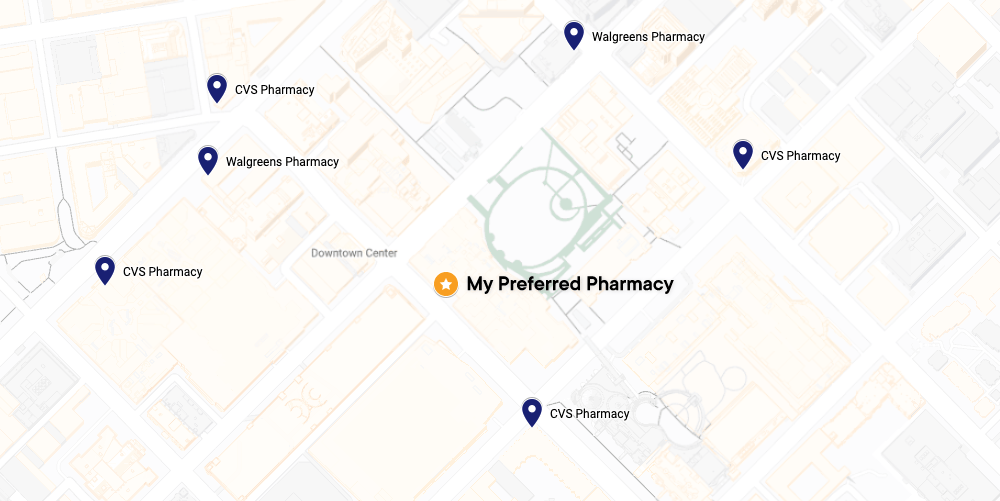
How long can herpes remain dormant?

Prescriptions are provided at the doctor's discretion. Learn more about our controlled substances policy and how to save up to 80% with our prescription discount card. PlushCare doctors cannot treat all cases of herpes. Our primary care physicians can conduct an initial evaluation of your symptoms but may need to refer you to a specialist or for in-person treatment. If you are experiencing life-threatening symptoms, seek emergency medical attention immediately.
About 67% of the global population has herpes simplex virus-1 (HSV-1), which usually causes oral herpes.1 Approximately 13% of people worldwide have herpes simplex virus-2 (HSV-2), which most commonly causes genital herpes.1 Despite these significant numbers, many people with HSV-1 and HSV-2 do not realize they carry the herpes virus because it lies dormant within their bodies.
Once someone has an outbreak for the first time, they will have recurrent outbreaks thereafter. 2,3 Oral herpes is characterized by cold sores or blisters around the face and mouth, while genital herpes causes sores and lesions around the genitals and anus.
While there is currently no cure or preventative vaccine for herpes, antiviral medications can help shorten outbreaks and reduce the severity of symptoms. If you are interested in exploring testing and treatment options, you can make an appointment with one of our online doctors today to discuss the right plan for you.
How long from the time of exposure does it take for herpes to show up?
If the herpes virus is dormant, it means it does not cause outbreaks. The first outbreak typically appears 2-20 days after exposure, but some people show no signs of herpes for weeks, months, or even years, and others never have outbreaks at all. However, if the virus is present in your body, even if you have no physical symptoms of herpes, you can still transmit it to others.1
Is it possible I did not catch herpes during the exposure?
As already mentioned, it is possible that you caught HSV-1 or HSV-2 and symptoms simply have not shown up during the typical incubation period of 2-20 days. However, with any virus, every person’s immune system is different, and it is possible that you did not become infected with herpes.
If you suspect you were exposed to the herpes virus, regardless of whether you have symptoms or not, you should make an appointment with your doctor to discuss testing and treatment plans should you test positive for HSV-1 or HSV-2. Our top-rated doctors are happy to talk to you about herpes testing and treatment 24/7 via our discreet online appointments.
Can I spread herpes if I do not have symptoms?
If you have contracted HSV-1 or HSV-2, you may not immediately—or ever—experience outbreaks of oral or genital herpes. Even without sores or blisters, though, you can still spread herpes to others. While herpes is most often spread through contact with sores during an outbreak, such as through kissing, sexual intercourse, or sharing personal items, HSV-1 and HSV-2 can also be transmitted through the skin and mucous membranes, even when no lesions are present.1,2,3
If you suspect you have been exposed to herpes, it is a good idea to make an appointment with your doctor right away. Until you have a diagnosis, you should use preventative methods like condoms, dental dams, and good hygiene to reduce the risk of transmitting herpes to someone else.3
Can I get tested for herpes even if I have not had an outbreak?
Yes, you can get tested for herpes even if you have not had an outbreak or any other HSV-1 or HSV-2 symptoms.2-5 People with herpes symptoms can get blisters or sores swabbed to test for the virus.
For people without an active outbreak, meanwhile, your doctor can conduct blood tests to look for herpes antibodies. Your immune system produces antibodies to fight off the virus, which therefore indicates that herpes is present in your body.4,5
Note that both swabbing and blood tests can tell you whether you have herpes, and if it is HSV-1 or HSV-2, but they cannot indicate when or how you contracted the virus.4,5
What treatments are available for herpes?
There is currently no cure for genital or oral herpes, nor is there a vaccine available that prevents it; herpes is a lifelong condition.1 However, there are medications that can shorten and reduce the severity of herpes outbreaks, thus making it harder to pass onto others. These include the prescription antiviral medications of acyclovir, famciclovir, and valacyclovir.
3 simple steps to discuss Herpes

Book a herpes treatment appointment.
Book a same day appointment from anywhere.

Talk to your clinician regarding your herpes symptoms.
Visit with a doctor on your smartphone or computer.

Pick up prescription for herpes treatment.
How pricing works
30 days of free membership
- Same-day appointments 7 days a week
- Unlimited messages with your Care Team
- Prescription discount card to save up to 80%
- Exclusive discounts on lab tests
- Free memberships for your family
- Cancel anytime
Paying with insurance
Membership
$19.99 /month
First month free
Visits
Copay
Visit price with insurance
Often the same as an office visit. Most patients with in-network insurance pay $30 or less!
We accept these insurance plans and many more:



Paying without insurance
Membership
$19.99 /month
First month free
Visits
$129
Visit price without insurance
Other herpes resources:
Sources:
PlushCare is dedicated to providing you with accurate and trustworthy health information.
- World Health Organization (WHO). (2024, September 13). Herpes simplex virus. Accessed October 16, 2024, from https://www.who.int/news-room/fact-sheets/detail/herpes-simplex-virus
- American Sexual Health Association. (2024). Diagnosing herpes. Accessed October 17, 2024, from https://www.ashasexualhealth.org/herpes-testing/
- U.S. Center for Disease Control and Prevention. (2024, February 20). About genital herpes. Genital Herpes. Accessed October 16, 2024, from https://www.cdc.gov/herpes/about/index.html
- Medline Plus. (2023). Herpes (HSV) test. Accessed October 17, 2024, from https://medlineplus.gov/lab-tests/herpes-hsv-test/
- Cleveland Clinic. (2024, October 3). Herpes simplex virus (HSV). Accessed October 16, 2024, from https://my.clevelandclinic.org/health/diseases/22855-herpes-simplex
PlushCare content is reviewed by MDs, PhDs, NPs, nutritionists, and other healthcare professionals. Learn more about our editorial standards and meet the medical team. The PlushCare site or any linked materials are not intended and should not be construed as medical advice, nor is the information a substitute for professional medical expertise or treatment.